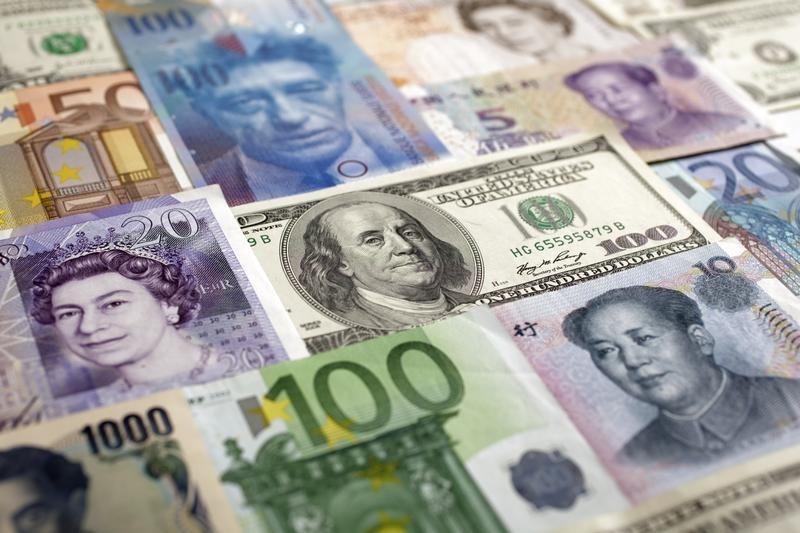Investing.com - The dollar showed weakness against major counterparts as US traders returned on Tuesday after the long weekend to digest news that oil ministers from Saudi Arabia, Russia, Qatar and Venezuela contemplated a possible production freeze.
The U.S. dollar index, which measures the greenback’s strength against a trade-weighted basket of six major currencies, was down 0.13% to 96.62.
The dollar reduced earlier losses against the safe haven yen, with USD/JPY down 0.67% to 113.83, as it continued to slip from Monday’s high of 114.72.
The low yielding euro rose against the dollar, with EUR/USD rising 0.20% to 1.1178.
The euro’s gains were held in check after European Central Bank President Mario Draghi said Monday the bank would not hesitate to act in March if necessary, reinforcing expectations for additional stimulus measures.
Markets will have the chance to peruse the details of the last ECB policy meeting on Thursday when the minutes will be published.
Similarly, the U.S. Federal Reserve is scheduled to produce its own meeting minutes on Wednesday.
Meanwhile, data on Tuesday showed that German economic sentiment fell sharply this month, amid concerns over falling oil prices, slowing global growth and heightened market volatility.
The ZEW index of German economic sentiment fell to a 16-month low, but was still slightly better than economists’ forecasts for a reading of zero.
Stateside, the New York Federal Reserve’s index of manufacturing conditions contracted for the seventh straight month in February, however the pace of decline slowed, official data showed on Tuesday.
The dollar also edged lower against the Swiss franc, which tends to be bought by investors in times of risk aversion, with USD/CHF easing to 0.9850, off Monday’s one-week highs of 0.9888.
The pound trimmed Monday’s gains, with GBP/USD dropping to 1.4309, as government data showed that the annual rate of inflation in the U.K. rose to a one-year high in January.
The commodity linked currencies trimmed back early gains, turning broadly lower for the day.
AUD/USD was trading at 0.7136, moving off overnight highs of 0.7182 and USD/CAD was last at 1.3837 after falling as low as 1.3707 earlier.
NZD/USD was last down 1.3% at 0.6577 after data showing that inflation expectations deteriorated in the first quarter raised the prospects of more easing by the country’s central bank.
